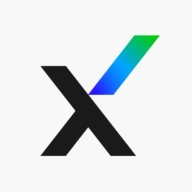


Trellix Endpoint Security Platform and Microsoft Defender for Cloud compete in the endpoint and cloud security sectors, respectively. Based on comparisons, Microsoft Defender appears to have the edge due to its seamless cloud integration and continuous updates.
Features: Trellix offers robust centralized management with the integration of multiple tools in a single dashboard, emphasizing local network security and data loss prevention. Microsoft Defender provides advanced threat detection with comprehensive workload oversight, regulatory compliance features, and seamless cloud integration enriched by regular updates.
Room for Improvement: Trellix users cite performance and configuration integration challenges, particularly after its merger, alongside high memory usage. Microsoft Defender users highlight complexity in cost management, policy granularity, and slow response times as areas needing refinement.
Ease of Deployment and Customer Service: Trellix supports on-premises, hybrid, and public cloud environments but requires dedicated maintenance. Microsoft Defender is optimized for hybrid and public cloud deployments, celebrated for ease within its ecosystem. Both offer responsive technical support, with Trellix users desiring faster response times and Microsoft users finding some support systems complex.
Pricing and ROI: Trellix pricing is viewed as reasonable but rising annually. It offers substantial ROI through threat management savings. Microsoft Defender's pricing is higher, driven by its ecosystem benefits, though perceived as costly for smaller firms seeking extensive functionality.
The detailed information PingSafe gives about how to fix vulnerabilities reduces the time spent on remediation by about 70 to 80 percent.
After implementing SentinelOne, it takes about five to seven minutes.
Our ability to get in and review our vulnerability stance, whether daily, monthly, weekly, or whatever it might be, has drastically improved over our prior provider.
Defender proactively indexes and analyzes documents, identifying potential threats even when inactive, enhancing preventative security.
Identifying potential vulnerabilities has helped us avoid costly data losses.
Compared to not having Microsoft Defender for Cloud in place, we definitely saw an advantage by not having downtime due to a security threat.
We have observed tremendous return on investment after implementing Trellix Endpoint Security as it is a more cost-effective solution compared to other products.
Clients appreciate the solution’s customization capabilities and ongoing product improvements.
There are two parts: one is the encryption which is standard and no AI is needed, but the data protection part could benefit from AI to detect new types of data and protect it.
When we send an email, they respond quickly and proactively provide solutions.
They took direct responsibility for the system and could solve queries quickly.
Having a reliable team ready and willing to assist with any issues is essential.
Since security is critical, we prefer a quicker response time.
The support team was very responsive to queries.
They understand their product, but much like us, they struggle with the finer details, especially with new features.
The response time is a notable issue.
I would rate their customer service nine out of ten.
When we implemented Trellix Endpoint Security in their network, multiple malwares were detected.
I would rate it a 10 out of 10 for scalability.
Scalability is no longer a concern because Cloud Native Security is a fully cloud-based resource.
I would rate the scalability of PingSafe 10 out of 10.
As we have reduced our on-premises infrastructure, it is about how we can migrate workloads to the cloud to make it easier, and then having everything fully encompassed and secured within that area makes it much easier for us to scale as needed and grow.
We are using infrastructure as a code, so we do not have any scalability issues with Microsoft Defender for Cloud implementation because our cloud automatically does it.
It has multiple licenses and features, covering infrastructures from a hundred to five hundred virtual machines, without any issues.
I would rate the scalability of the solution as a six out of ten, indicating some challenges due to downtime requirements.
Trellix Endpoint Security is scalable.
SentinelOne Singularity Cloud is incredibly reliable.
We contacted Cloud Native Security, and they addressed it in a day.
The only downtime we had was when switching from V1 to V2 but it was smooth.
Defender's stability has been flawless for us.
Microsoft Defender for Cloud is very stable.
Microsoft sometimes changes settings or configurations without transparency.
I would rate its stability as nine out of ten.
I would rate the stability of Trellix Endpoint Security as near perfect, close to ten out of ten.
I think it's stable enough; earlier it had glitches, but now it's stable enough.
If they can merge Kubernetes Security with other modules related to Kubernetes, that would help us to get more modules in the current subscription.
As organizations move to the cloud, a cloud posture management tool that offers complete cloud visibility becomes crucial for maintaining compliance.
I would also like to see Cloud Native Security offer APIs that allow us to directly build dashboards within the platform.
Microsoft, in general, could significantly improve its communication and support.
It would be beneficial to streamline recommendations to avoid unnecessary alerts and to refine the severity of alerts based on specific environments or environmental attributes.
The artificial intelligence features could be expanded to allow the system to autonomously manage security issues without needing intervention from admins.
What needs improvement in Trellix Endpoint Security is the reduction of resource consumption by the scanning feature.
Improvements are needed in forensic analytics to detect specific vulnerabilities.
The product does not seem to be cloud-native.
With very little negotiation involved, we just let them know what we could pay and they were willing to meet us at slightly above what we paid with Sophos, which was still very fair for what we were looking at.
There are some tools that are double the cost of Cloud Native Security.
I recall Cloud Native Security charging a slightly higher premium previously.
Security has essentially no cost when compared to the cost of a breach.
Every time we consider expanding usage, we carefully evaluate the necessity due to cost concerns.
We appreciate the licensing approach based on employee count rather than a big enterprise license.
The license costs are very reasonable, around 1,000 to 1,200 rupees per year.
Trellix Endpoint Security is cost-effective and provides excellent value for money.
My experience with pricing, setup cost, and licensing is good; compared to other tools, Trellix Endpoint Security Platform provides lower costs.
This helps visualize potential attack paths and even suggests attack paths a malicious actor might take.
The infrastructure-as-code feature is helpful for discovering open ports in some of the modules.
This tool has been helpful for us. It allows us to search for vulnerabilities and provides evidence directly on the screen.
The most valuable feature for me is the variety of APIs available.
This feature significantly aids in threat detection and enhances the user experience by streamlining security management.
The most valuable feature is the recommendations provided on how to improve security.
Trellix Endpoint Security is a proven, robust, and cost-effective solution that protects the organization from different types of ransomware and attacks.
Including options like Application Control (formerly Solidcore), integrated monitoring, change control, DLP, and advanced threat protection, the solution offers comprehensive security.
The detection capability of Trellix Endpoint Security is higher than traditional antivirus solutions.
| Product | Market Share (%) |
|---|---|
| Microsoft Defender for Cloud | 16.7% |
| AWS GuardDuty | 14.8% |
| Wiz | 13.2% |
| Other | 55.3% |
| Product | Market Share (%) |
|---|---|
| Trellix Endpoint Security Platform | 3.7% |
| Microsoft Defender for Endpoint | 8.2% |
| CrowdStrike Falcon | 7.0% |
| Other | 81.1% |


| Company Size | Count |
|---|---|
| Small Business | 47 |
| Midsize Enterprise | 20 |
| Large Enterprise | 53 |
| Company Size | Count |
|---|---|
| Small Business | 27 |
| Midsize Enterprise | 10 |
| Large Enterprise | 49 |
| Company Size | Count |
|---|---|
| Small Business | 67 |
| Midsize Enterprise | 36 |
| Large Enterprise | 61 |
SentinelOne Singularity Cloud Security offers a streamlined approach to cloud security with intuitive operation and strong integration capabilities for heightened threat detection and remediation efficiency.
Singularity Cloud Security stands out for its real-time detection and response, effectively minimizing detection and remediation timelines. Its automated remediation integrates smoothly with third-party tools enhancing operational efficiency. The comprehensive console ensures visibility and support for forensic investigations. Seamless platform integration and robust support for innovation are notable advantages. Areas for development include improved search functionality, affordability, better firewall capabilities for remote users, stable agents, comprehensive reporting, and efficient third-party integrations. Clarity in the interface, responsive support, and real-time alerting need enhancement, with a call for more automation and customization. Better scalability and cost-effective integration without compromising capabilities are desired.
What are SentinelOne Singularity Cloud Security's standout features?SentinelOne Singularity Cloud Security is deployed in industries needing robust cloud security posture management, endpoint protection, and threat hunting. Utilized frequently across AWS and Azure, it assists in monitoring, threat detection, and maintaining compliance in diverse environments while providing real-time alerts and recommendations for proactive threat management.
Microsoft Defender for Cloud is a comprehensive security solution that provides advanced threat protection for cloud workloads. It offers real-time visibility into the security posture of cloud environments, enabling organizations to quickly identify and respond to potential threats. With its advanced machine learning capabilities, Microsoft Defender for Cloud can detect and block sophisticated attacks, including zero-day exploits and fileless malware.
The solution also provides automated remediation capabilities, allowing security teams to quickly and easily respond to security incidents. With Microsoft Defender for Cloud, organizations can ensure the security and compliance of their cloud workloads, while reducing the burden on their security teams.
Trellix Endpoint Security Platform offers essential features like centralized management, threat prevention, and encryption, facilitating seamless scaling and integration with other systems while prioritizing user security.
This comprehensive platform focuses on endpoint protection, antivirus capabilities, and malware defense. It enhances cybersecurity with data loss prevention, advanced threat detection, and AI-driven features for reliable protection without impacting performance. Central management and advanced reporting streamline integration and ease of use. Flexible policy deployment through the management console and its robust security measures, such as DLP and device control, further increase protection. Challenges include high CPU and memory usage affecting performance, a complex interface, and lengthy deployment. Third-party integration and Windows Hello support need improvement. Additional concerns involve improved threat detection and faster technical support responses.
What are the key features of Trellix Endpoint Security Platform?Trellix Endpoint Security Platform is widely implemented in industries such as banking and government for securing mobile and desktop devices. Its capabilities cover network security, device control, and remote access protection, catering to diverse environments by offering robust cybersecurity management against advanced threats.
We monitor all Cloud Workload Protection Platforms (CWPP) reviews to prevent fraudulent reviews and keep review quality high. We do not post reviews by company employees or direct competitors. We validate each review for authenticity via cross-reference with LinkedIn, and personal follow-up with the reviewer when necessary.